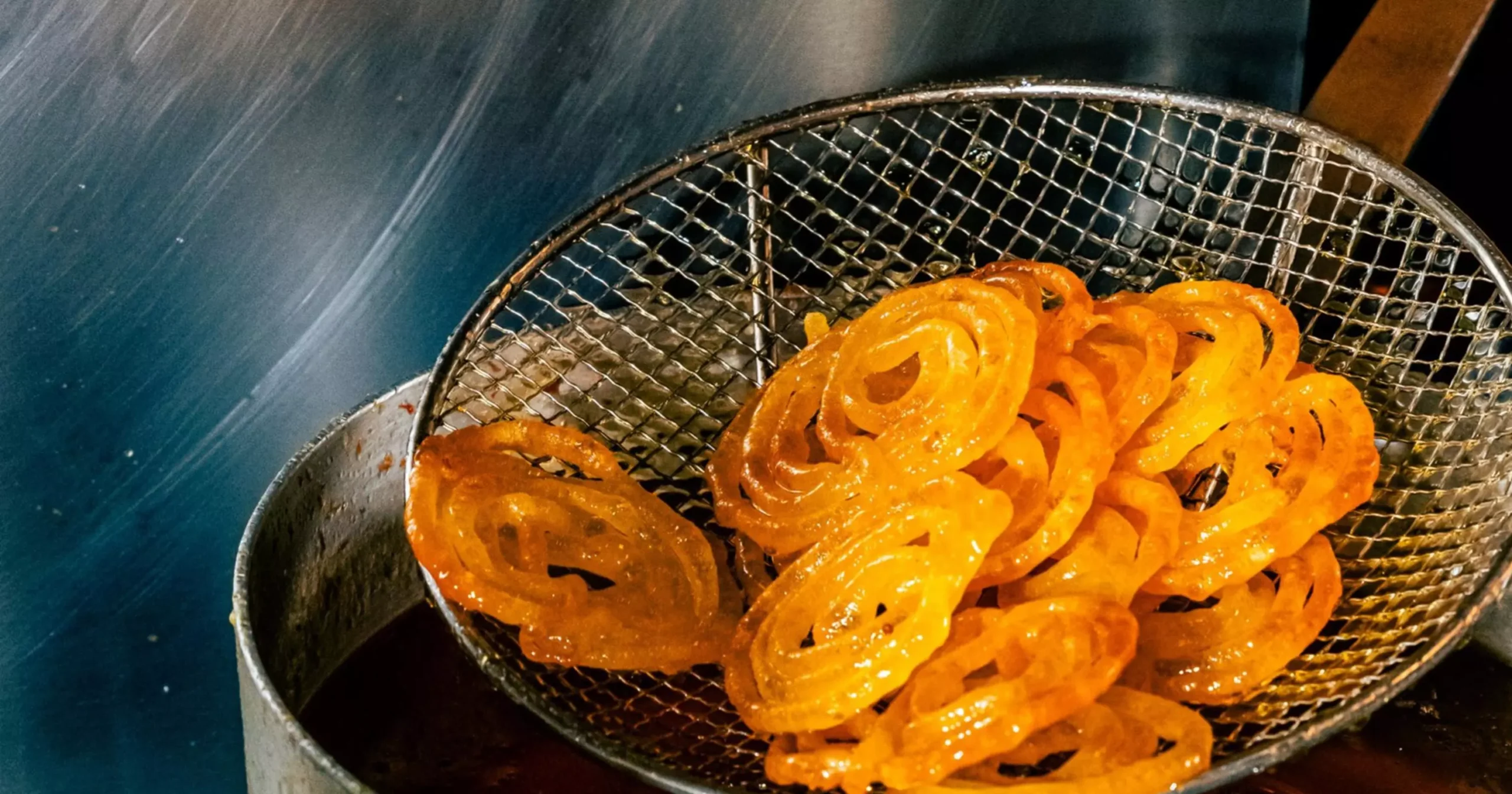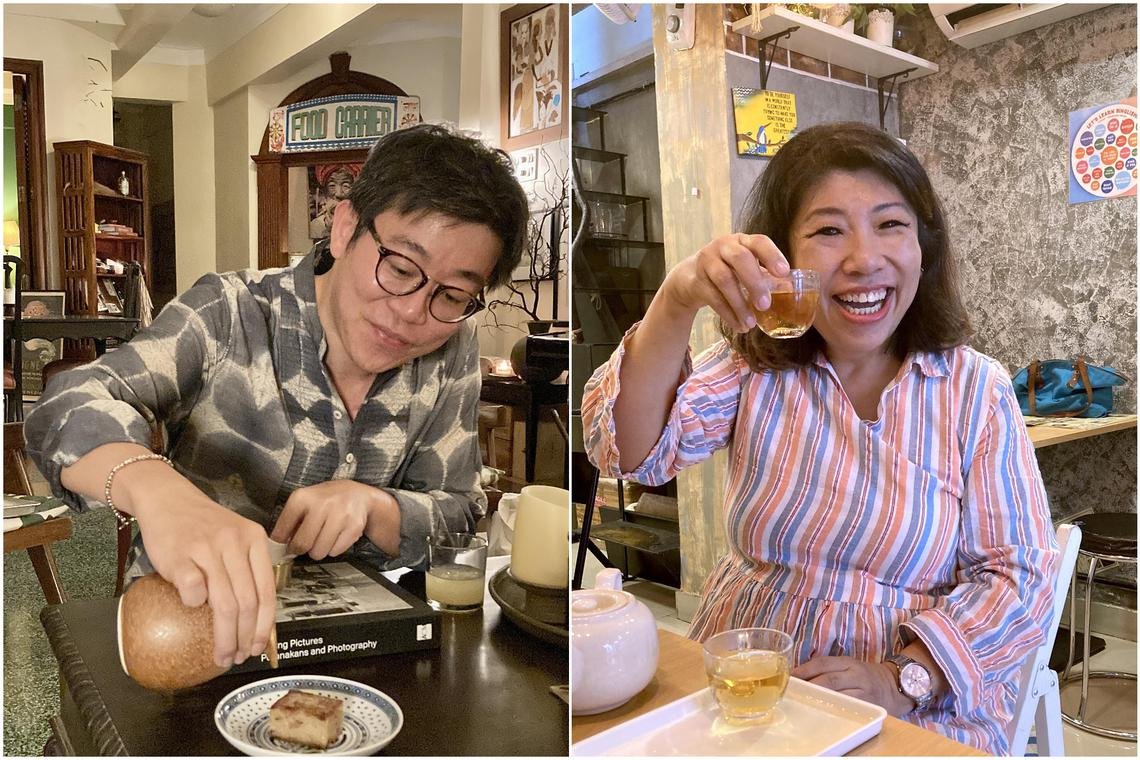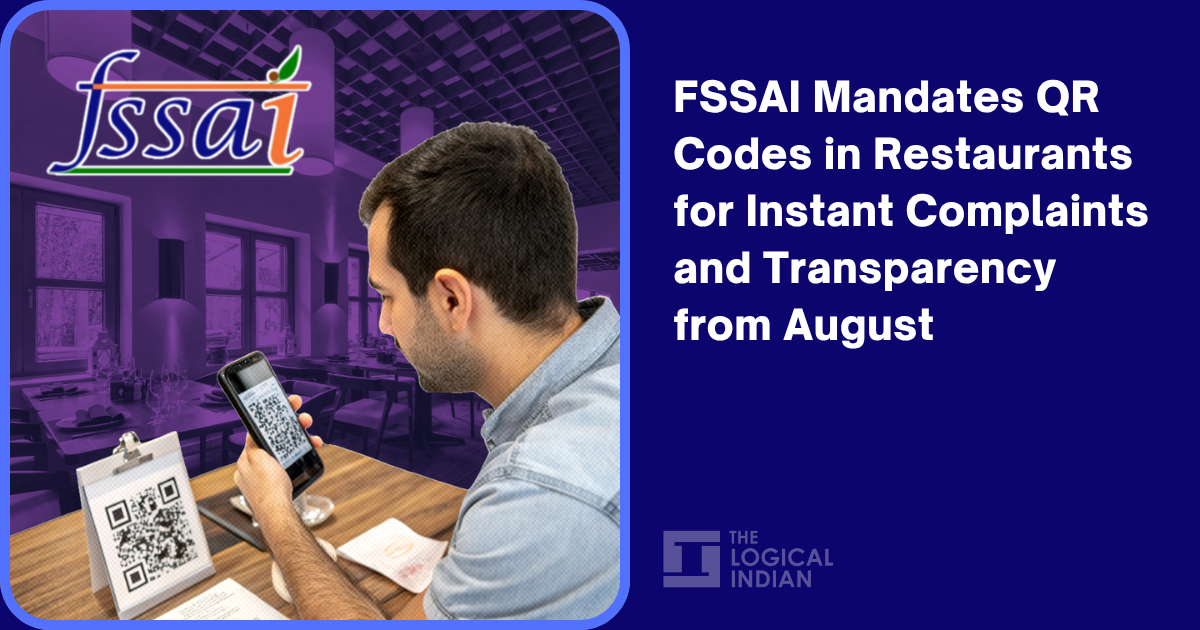Restaurants & Food
Award-Winning Street Food Restaurant Mowgli to Bring Indian Home Kitchen to Norwich

Mowgli Street Food, the much-loved Indian restaurant brand known for its vibrant street food and authentic home cooking, officially opens this week.
On Friday August 8 Mowgli will open its doors bringing its distinctive flavours, design, and charitable spirit to the heart of the city.
Anyone dining during the first week of opening (Aug 8-15) will receive free Chat Bombs, one of Mowgli’s signature dishes at the very heart of their cuisine. The signature Chat Bombs are crisp bread puffs filled with yogurt, spices, chutney and chickpeas, a really refreshing flavour explosion!
Mowgli Street Food, the celebrated Indian restaurant brand founded by Nisha Katona MBE, is bringing its unique blend of home-style cooking and immersive atmosphere to Chantry Square, Norwich.
The new restaurant marks an exciting chapter in the city’s food scene and for Mowgli being the first ever in Norwich.
Mowgli is rooted in the way Indians eat at home and from street food stalls, not traditional curry house fare, but the vibrant, punchy dishes cooked how Indian eat at home.
The restaurant is famed for its iconic ‘chat bombs’, treacle tamarind fries, Keralan fried chicken and Mother Butter Chicken, the real deal!
With interiors inspired by Katona’s ancestral home in Varanasi, diners can expect an amber-glow night market feel, trees strung with vines, and the lively clatter of tiffin tins, all signature elements that make Mowgli an unforgettable dining experience.
“Mowgli is a place to kick back with friends and family, two and four-legged, as we have a passion for the things that matter to you,” says Katona. “It’s about creating a home-from-home, where food and kindness come first.”
General manager of Chantry Place, Jo Bates, says: “We’re really proud to offer such a wide variety of global flavours, and Mowgli is the perfect addition, bringing a true taste of India to Norwich. Its ethos of supporting local charities fits so well with our own and we can’t wait for the doors to open and for shoppers to experience its mouth-watering menu!”
The arrival of Mowgli in Norwich also brings with it the values and mission of The Mowgli Trust, the charitable heart of the business. With over £2.6 million raised donated to local and international causes.
Every Mowgli restaurant works with a handpicked local charity, and in Norwich, the team is proud to partner with East Anglia’s Children’s Hospices (EACH), whose work supports families across Norfolk and East Anglia.
Laura Southcott, Senior Corporate Fundraiser for EACH, said: “We’re thrilled and grateful to have forged this amazing partnership with the Mowgli Trust.
“From our point of view, it’s a fantastic, high-profile opportunity to raise funds and awareness, supporting our vital work across Norfolk and the rest of East Anglia. We firmly believe it’s the start of an exciting relationship, and this venture is going to directly help the children and families receiving our care and support. As well as expressing our gratitude, we’d also like to take this opportunity to wish our friends from the Mowgli Trust the very best of luck with their new restaurant in Norwich.”
Mowgli’s commitment to enriching lives extends to its teams and guests as well as its communities. The restaurant group has been recognised nationally for its culture and care, including multiple accolades for workplace excellence and charitable leadership.
Each restaurant is led by a dedicated Charity Champion, and Mowgli’s teams are known for going the extra mile, from skydives and marathons to bake sales and crocheting, to raise awareness and support for their partner causes.
Mowgli’s expansion is backed by an award-winning reputation. The brand has been named ‘Best Place to Work’ by The Sunday Times (three years in a row), one of the UK’s Best Companies to Work For (four years running) and many hospitality awards.
With 24 restaurants across the country TV personality, Nisha Katona, opened the first branch of Mowgli in Liverpool in 2014.
Dishes are cooked fresh every day with flavourful herbs and spices and is said to be based around “the type of food that Indians cook and eat at home”.
Nisha has worked as a business and food expert on several projects across the BBC, ITV and Channel 4.
Katona received an MBE in the 2019 New Year Honours List for services to the food industry.
BM Caterers Turn Forum Words into Action with Access Champion Appointment
Restaurants & Food
A new Indian restaurant is slinging the best chaat for miles

Eat Here Now is a first look at some of the newest, hottest restaurants around — the ones we think are worth visiting. We dine once, serve forth our thoughts, and let you take it from there.
If you ask my two food-obsessed friends who grew up in North India, Jalebi Street — a new mom-and-pop restaurant in the upper Haight — makes the best chaat within a 15-mile radius.
Yes, this means Jalebi Street is even better than the beloved West Berkeley institution Viks Chaat. Fighting words for sure, which is why my friends requested to be kept anonymous. But they aren’t wrong: Jalebi Street’s take on chaat, the sweet-savory (mostly) fried street food snack that originated in North India, is among the best you’ll find anywhere near San Francisco.
The menu also includes other street foods and mains like dal makhani ($16), a rich, time-consuming dish made of slow-cooked black lentils, and saag paneer ($17) topped with a pat of butter. But, at this point, in our chaat-desert of a city, the chaat is what’s getting the buzz.
Jalebi Street’s owners, husband and wife Sam Bhamu and Bhawana Choudhary, opened the restaurant in March, moving it to the city after launching in 2021 as a pop-up in a parking lot in Sunnyvale. “But you can’t do a lot of things in a parking lot,” Choudhary says. They initially made plans to get a food truck but then stumbled on a prime location in the Haight. “It was a shocker when we got it. We were like, ‘Oh, shit — now what are we going to do?”
When I stopped in for lunch in July, the restaurant had yet to hire a dishwasher, so paper plates were being used, which added to the street food vibe. (A dishwasher was being hired and real plates were on the way.) The interior is rather bare bones — decorations are also coming — which is fine, because you’re not here for the atmosphere. You’re here to eat until you ache.
Choudhary, who studied cooking and worked in hotels in India, moved here from Rajasthan last year after marrying Bhamu. His parents own Indian restaurants on the Peninsula. Their wedding was a “set up,” as Choudhary puts it, arranged in part because of the couple’s shared love of food and certainly because both spent their childhoods in Delhi. Bhamu’s brother Vikram Bhamu, a tightlipped cook who won’t share his secrets, is Jalebi Street’s chef.
My friends and I started with the chaat side of the menu, including pani puri ($9), five light-as-air, crisp shells filled with mint and tamarind “water.” They are more fun to eat if you know how to do it properly. My friend demonstrated, spooning in a little of the sweet tamarind water and then — using the hollow shell as a ladle — using her fingers to dip the whole thing into the mint water, the tart-sweet liquid dripping everywhere. (Laughing, her husband said that in India, “The taste of the pani puri is the taste of the sweat of the guy making it on the street.” Luckily, San Francisco has remained at a very unsweaty 65 degrees all summer.)
Up next was the onion kachori ($12), three savory pastries with interiors lined with a thin layer of sweet, aromatic caramelized onions and spices. (The chef will not divulge the spices, not even to Choudhary.) Kachori is a Rajasthan specialty that requires a patient 40-minute fry, a demonstration of deftness if a chef can keep the outside crispy and inside soft without burning it, which he did.
“People travel so far for these,” says Choudary. My friends took a bite and deemed the flaky kachori “great.” We also ordered the kachori chaat ($12) topped with tamarind and mint chutneys, then smothered in tart, cold yogurt and a sprinkling of little fried noodley bits called sev.
From the non-chaat street food options, there’s vada pao ($5.50), one of Bombay’s most iconic street foods and my discerning friend’s all-time favorite. At Jalebi Street, however, the massive starch-on-starch sando, a spicy fried potato fritter on a soft bun, is deemed “Delhi style” (to which my friend sniffed, “Delhi-style vada pao doesn’t exist”) because it’s served with a swipe of sweet tamarind chutney — apparent blasphemy. Though some customers love it, Choudhary knows she’s serving a bite of something divisive. “It’s always the debate,” she admits.
Better yet — and devastatingly delicious — was the Delhi-style chole bhature ($16), a balloon of a blistered, chewy-crispy fried bread pulled apart to release a puff of steam, ready to swipe in a bowl of spiced chickpeas that are darkened by the addition of black tea. Our choice for runner-up was the Rajasthani bedmi poori allo sabji ($15), four smaller, slightly denser, fried and puffed whole-wheat breads served with a comforting spiced potato curry. (My friends’ parents were the first to visit Jalebi Street and loved this dish enough to request that an order be brought home to them.)
And finally, there was the piece de resistance: Jalebi ($8), a sweet made to order from fermented batter that’s fried by piping it directly into ghee, after which it’s soaked in saffron sugar syrup. Considering jalebi is the restaurant’s namesake, there’s a lot of pressure for it to perform.
I’d never had jalebi before, but what arrived — a delicate, golden, transparent, shattering spiral that, with one bite, flooded my mouth with a syrupy-saffrony, eye-popping sweetness — could be a Michelin-level dessert if it just had fancy plating. We ordered it with rabri, a mild, house-made condensed milk scented with lemony cardamom. It’s the perfect foil, providing some equilibrium to the heady sugar rush. One bite and my friend was sold: “Best jalebi I’ve had in the country,” he said.
Restaurants & Food
Char kway teow in India? Meet the Singaporeans bringing local food to Mumbai

MUMBAI – One runs a supper club that evokes memories of home-cooked flavours, and the other is billed as the city’s first Singaporean street food restaurant.
For these two chefs abroad, food is a way to stay connected to their Singaporean identity.
Restaurants & Food
FSSAI Mandates QR Codes in Restaurants for Instant Complaints and Transparency from August

India’s Food Safety and Standards Authority (FSSAI) has implemented a new mandate from August 2025, requiring all food businesses—such as restaurants, cafes, cloud kitchens, and food trucks—to clearly display both their FSSAI license and a QR code linked to the Food Safety Connect App at key customer touchpoints.
This QR code allows consumers to instantly check food license details and raise concerns about food safety or hygiene. The aim is to strengthen consumer safety and regulatory transparency by enabling real-time, direct reporting of issues to authorities for quick resolution.
Enhancing Consumer Safety Through Digital Empowerment
Under the new rules, the QR code and license must be prominently displayed at entrances, billing counters, seating areas, and digital platforms like food delivery apps and websites.
By scanning the QR code, consumers can verify if an establishment is genuinely licensed, report hygiene violations, mislabelling, or unsafe practices, and even track the progress of their complaints in real time. FSSAI officials emphasise that this initiative “empowers consumers and modernises India’s food safety framework,” providing “a user-friendly tool for swift grievance redressal and heightened accountability”.
Who Must Comply – and What’s at Stake?
The directive applies to all food business operators (FBOs): restaurants, cafes, catering units, retail food outlets, cloud kitchens, food trucks, and even online delivery aggregators. Failure to comply may lead to penalties or suspension of food licenses, as per the Food Safety and Standards Act.
FSSAI highlights that this shift was driven by recent food safety lapses and widespread consumer complaints about poor hygiene and misleading labelling. With this move, India aims to foster a safer, more transparent, and trustworthy food landscape for every consumer.
Expert Advice: How Consumers and Businesses Can Stay Safe
Food safety experts and advocacy groups have welcomed the QR code initiative, calling it a much-needed reform for India’s fast-evolving food sector. Experts advise consumers to regularly scan the QR code whenever they visit a food outlet, always look out for a valid FSSAI license, and use the Food Safety Connect App to flag issues regarding hygiene or food quality.
For food business operators, experts recommend educating staff and customers about the new requirements, keeping the license and QR code up to date, and responding promptly to complaints. Professional food hygiene auditors and compliance consultants are now advising businesses to conduct regular kitchen audits, maintain proper documentation, and train teams on hygiene protocols to avoid penalties and protect business reputation.
Building a Transparent Food System – The Road Ahead
The introduction of digital QR code reporting marks a significant shift in food regulation, encouraging transparent operations and timely action on consumer complaints. By simplifying redressal avenues and holding food businesses to higher standards, this initiative takes Indian consumer protection a step further.
The Food Safety Connect App is available on both Android and iOS, ensuring wide accessibility. FSSAI encourages all food sector stakeholders to see this not just as regulatory compliance, but as a collective mission to build trust and ensure public health.
The Logical Indian’s Perspective
At The Logical Indian, we see this bold step as a cornerstone for a safer, digitally enabled, and empathetic consumer ecosystem. With robust reporting tools and strict accountability, Indian diners are now better equipped than ever to demand safe food and fair practices.
FSSAI mandates display of the ‘Food Safety Connect’ App QR Code at all food outlets- a move aimed at empowering consumers by providing them with a direct & user-friendly platform for grievance redressal. #FSSAIRelease @PIB_India @MoHFW_INDIA
Read More – https://t.co/xWLQgPJU8i pic.twitter.com/U8w8tPlASy
— FSSAI (@fssaiindia) August 1, 2025
-

 Brand Stories2 weeks ago
Brand Stories2 weeks agoBloom Hotels: A Modern Vision of Hospitality Redefining Travel
-

 Brand Stories1 week ago
Brand Stories1 week agoCheQin.ai sets a new standard for hotel booking with its AI capabilities: empowering travellers to bargain, choose the best, and book with clarity.
-

 Destinations & Things To Do2 weeks ago
Destinations & Things To Do2 weeks agoUntouched Destinations: Stunning Hidden Gems You Must Visit
-

 Destinations & Things To Do1 week ago
Destinations & Things To Do1 week agoThis Hidden Beach in India Glows at Night-But Only in One Secret Season
-

 AI in Travel2 weeks ago
AI in Travel2 weeks agoAI Travel Revolution: Must-Have Guide to the Best Experience
-

 Brand Stories1 month ago
Brand Stories1 month agoVoice AI Startup ElevenLabs Plans to Add Hubs Around the World
-

 Brand Stories3 weeks ago
Brand Stories3 weeks agoHow Elon Musk’s rogue Grok chatbot became a cautionary AI tale
-

 Asia Travel Pulse1 month ago
Asia Travel Pulse1 month agoLooking For Adventure In Asia? Here Are 7 Epic Destinations You Need To Experience At Least Once – Zee News
-

 AI in Travel1 month ago
AI in Travel1 month ago‘Will AI take my job?’ A trip to a Beijing fortune-telling bar to see what lies ahead | China
-

 Brand Stories2 weeks ago
Brand Stories2 weeks agoContactless Hospitality: Why Remote Management Technology Is Key to Seamless Guest Experiences

You must be logged in to post a comment Login